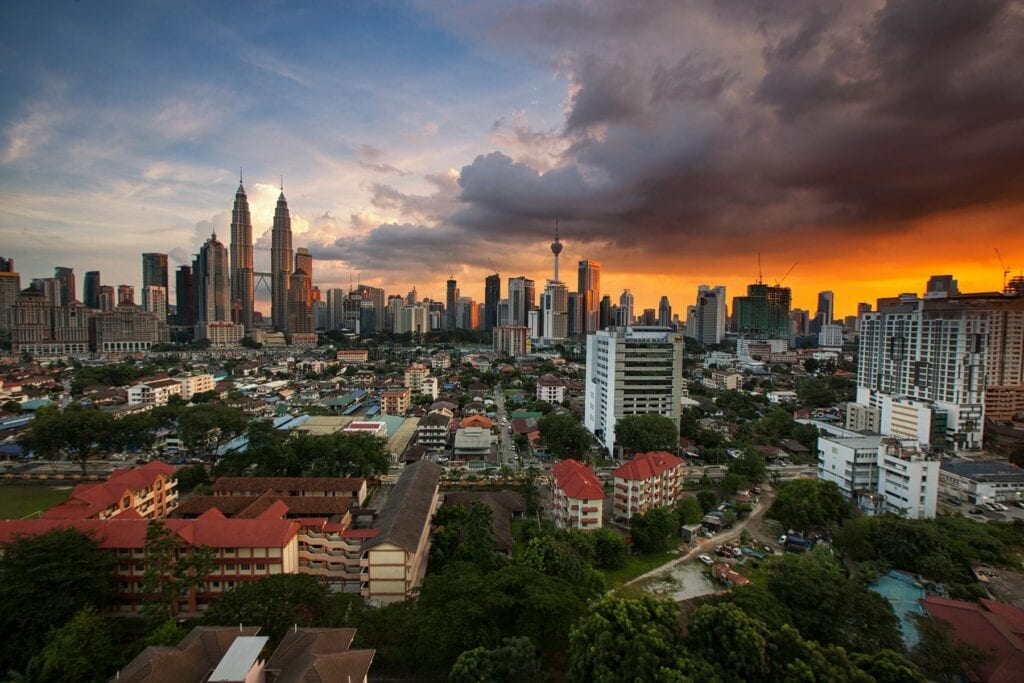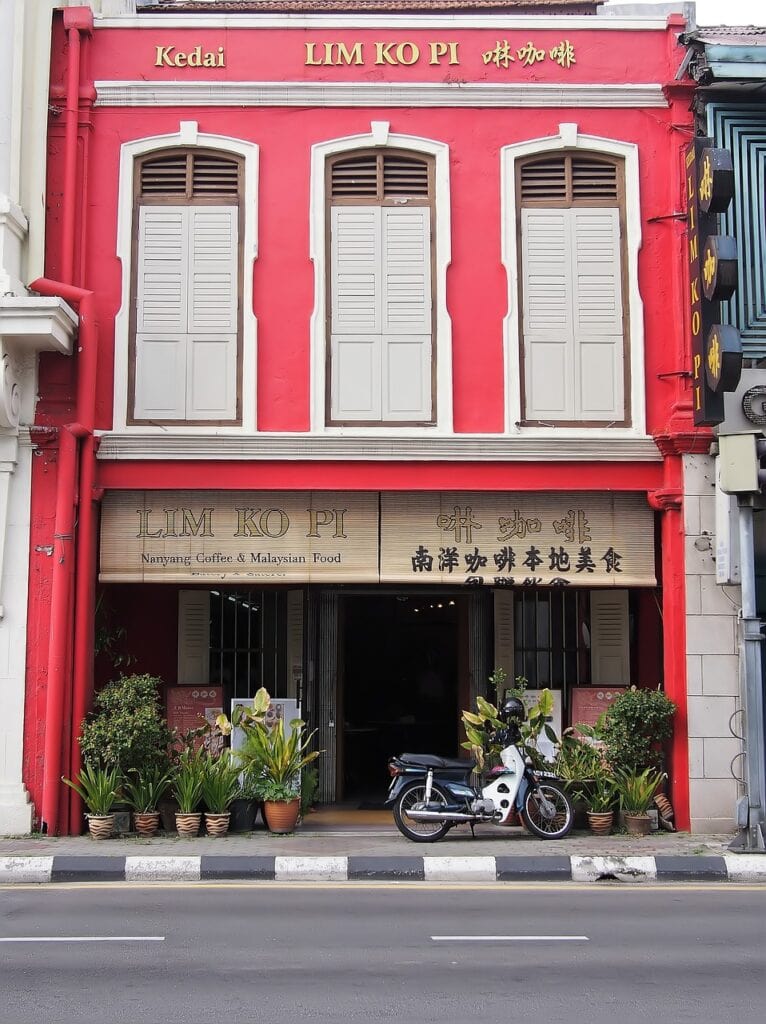
Table of Contents
How to Buy Residential Property in Malaysia as a Foreigner: Essential Guidelines and Steps
Navigating the world of real estate can be challenging, especially for foreigners looking to invest in a new country. Malaysia offers an attractive market for property buyers with its vibrant culture and growing economy. Foreigners can indeed buy residential property in Malaysia, though they must adhere to certain rules and restrictions. Understanding these guidelines is essential for a successful investment.
Malaysia allows foreigners to purchase properties, provided they meet specific eligibility criteria and abide by government-imposed guidelines. The process includes understanding the minimum purchase price requirements and restrictions on certain types of properties. Properties on Malay reserved land and some affordable units are off-limits to foreign buyers. However, there are diverse property options available.
Financial considerations like stamp duties and loan agreements are also pivotal in planning your investment. Prospective buyers should review financial policies to ensure they are prepared for the associated costs. Additional resources on the purchase process can be useful, including steps like submitting a formal purchase offer and seeking financing options.
Key Takeaways
- Foreigners can buy property in Malaysia with some restrictions.
- Understanding legal and financial requirements is crucial.
- Eligibility criteria must be met for property investments.
Understanding the Legal Framework
Foreign buyers interested in purchasing residential properties in Malaysia need to familiarize themselves with the legal framework. This includes understanding the National Land Code, obtaining State Authority Consent, and following the Guidelines on the Acquisition of Properties.
National Land Code
The National Land Code 1965 is a key piece of legislation governing land matters in Malaysia. It outlines the procedures for transferring property ownership, land dealings, and restrictions on land usage. Foreign buyers can purchase residential properties but must adhere to specific rules set forth in the code.
It is important for foreign buyers to be aware of the minimum purchase requirement. The minimum purchase price varies by state. This law ensures that local buyers are not priced out of the market while allowing foreigners to invest in Malaysian real estate.
State Authority Consent
Before purchasing property, foreigners need to obtain State Authority Consent. Each state in Malaysia may have its own rules regarding property acquisition by foreigners. This consent is essential as it officially permits the transfer of property ownership.
The approval process can take several months, so potential buyers should plan accordingly and engage with local legal experts to navigate the process. Compliance with this requirement prevents any legal complications, ensuring that the property transaction is valid and recognized by Malaysian law.
Guidelines on the Acquisition of Properties
There are specific guidelines regulating the acquisition of properties by foreigners in Malaysia. These guidelines include limitations on the types and locations of properties that can be purchased. Restrictions are often in place to preserve local housing markets and cultural sites.
Foreigners should note that they are usually allowed to buy high-rise residential units or houses in approved zones. Adhering to these guidelines is crucial to making a legitimate purchase. Consulting with a knowledgeable real estate agent or lawyer is advisable to ensure that all guidelines are followed accurately.
Eligibility and Restrictions
Buying a residential property in Malaysia as a foreigner requires understanding specific rules and restrictions. These include limits on foreign ownership and eligibility criteria tied to visa programs like Malaysia My Second Home (MM2H).
Foreign Ownership Limits
Foreign buyers can purchase residential properties in Malaysia but must adhere to certain limits. They may not buy properties on Malay Reserved Land or low- and medium-cost affordable housing units. Each state in Malaysia can set its own minimum purchase price for foreigners, which often ranges from RM600,000 to RM1,000,000.
Properties allocated for Bumiputera groups are also restricted. These measures aim to preserve resources for local citizens and ensure fair housing distribution. Understanding these restrictions is crucial for navigating the Malaysian property market effectively.
MM2H Visa and Property Ownership
The MM2H Program offers a special visa for long-term stay in Malaysia. It provides foreigners the ability to purchase residential properties above a certain price threshold, which varies by state.
Applicants must meet specific criteria, like financial requirements, to qualify for the MM2H visa. This program allows more straightforward property acquisition for those seeking prolonged residence in Malaysia. It serves as a valuable option for foreign buyers looking to invest in the Malaysian property market while enjoying extended stays in the country.

Financial Considerations
When buying property in Malaysia, foreign buyers need to be aware of various financial considerations, including stamp duty, legal fees, and financing options. Knowing these key areas helps foreign buyers make more informed decisions and manage their budgets effectively.
Understanding Stamp Duty
Stamp duty is an essential cost for foreign buyers. It is based on a percentage of the property price. As of 2024, the rate for non-citizens and foreign-owned companies is a flat 4% for the instrument of transfer of property Stamp Duty Details.
The stamp duty on loan agreements is set at 0.5%. Buyers should budget for these costs early to avoid surprises during the purchasing process. This duty is vital in property transactions as it contributes to the legal recognition of the property transfer.
Legal Fees and RPGT
Legal fees are another important expense for property buyers. These cover the cost of hiring legal expertise to handle the transaction documents and ensure compliance with local property laws. The fees usually range from 1% to 3% of the property price.
In addition to legal fees, foreign buyers need to be aware of the Real Property Gains Tax (RPGT). RPGT is a tax on the profit made from selling property. The tax rate depends on how long the property has been held. Foreigners may face a higher rate, which impacts the return on their investment in the Malaysian property market.
Financing Your Property
Financing options for foreign buyers can vary. Many banks in Malaysia offer loans to non-citizens, but terms and conditions differ. Buyers need to compare mortgage rates and assess the loan-to-value (LTV) ratio, which is often capped at 70% for foreign buyers.
Prospective buyers should also determine their budget and financing options early on. Working with a trusted real estate lawyer and financial advisor can help navigate these complexities. It’s recommended to have a clear understanding of affordability and secure the necessary financing before finalizing any property investments in Malaysia.
Property Types and Investment Options
Foreigners looking to buy property in Malaysia have several options, including strata titled and other property types. Understanding these helps make informed investment decisions and navigate their specific regulations.
Strata Titled Properties
Strata titled properties are common choices for foreigners in Malaysia. These include condominiums and apartments. Strata titles allow individual ownership within a larger building or development, making them accessible investment options for non-Malaysians. Owners share common areas, such as elevators and pools, which are managed by a body corporate.
This property type is attractive due to its organized management structure. It is particularly appealing in urban centers like Kuala Lumpur. Additionally, strata properties often provide rental income opportunities, contributing to their appeal as an investment. The structured management can minimize complications in ownership and leasing.
Comparing Property Types
When comparing property types, foreigners have options beyond strata titled properties. Residential properties like landed houses can be purchased, though with more restrictions. The process often involves higher minimum investment thresholds, which can limit access for smaller investors. Commercial properties offer potential for rental income but come with different regulations that require careful consideration before investing.
Agricultural land and industrial properties present unique challenges and benefits. Agricultural lands are often restricted for foreign ownership, while industrial properties can be viable, depending on the intended use. Investors should evaluate their long-term goals against these property types. Weighting investment, regulations, and potential returns will guide decision-making for prospective buyers navigating the Malaysian real estate market.
The Process of Acquiring Property
For foreigners interested in purchasing property in Malaysia, understanding the steps involved can make a significant difference. Key stages include thorough research and evaluation of properties and following a structured buying process.
Due Diligence
Before any purchase, due diligence is essential for foreign buyers. This involves researching property ownership, checking for any encumbrances, and verifying the property’s legal status. It’s crucial to confirm that the property is not on any prohibited purchase lists for foreigners, such as low-cost housing or properties on Malay reserved land.
Foreigners should engage a local real estate lawyer to help navigate the legal requirements. It is also advisable to look into zoning laws and potential future developments in the area.
Additionally, acquiring a property in Malaysia involves understanding the necessary finance options. Foreigners typically need to ensure that they qualify for a mortgage from a Malaysian or international bank if financing is required.
Property Purchase Procedure
The process begins with identifying a suitable property. Foreign buyers often start by exploring properties available in Malaysia. Once a property is chosen, the buyer must express intent to purchase through a Letter of Offer or a developer’s sales form.
Next, an upfront payment, usually 2-3%, is required. The sale then proceeds with a Sale and Purchase Agreement, typically drafted by a lawyer, which outlines the property details and conditions.
Approval from the State Authority is necessary for foreign property acquisitions. The approval process can take several months, during which the buyer should liaise with the lawyer to ensure compliance with all regulations and to resolve any issues that arise.

Frequently Asked Questions
Foreigners interested in purchasing property in Malaysia need to understand the eligibility criteria, restrictions, and processes involved. It’s important to know about the influence of programs like Malaysia My Second Home (MM2H) and any limitations on property types or locations.
What are the eligibility criteria for foreigners to purchase property in Malaysia?
Foreigners can buy property in Malaysia, but they need to meet certain conditions. They often need approval from the state authority. The process is generally facilitated by a solicitor, ensuring all legal requirements are met.
How does Malaysia My Second Home (MM2H) programme influence property purchase by foreigners?
The Malaysia My Second Home (MM2H) program offers long-term residency options for foreigners. Participants of this program often find it easier to purchase property in Malaysia, as it provides additional assurance to sellers regarding the buyer’s commitment to long-term residency.
What is the minimum property price threshold for foreign buyers in Malaysia as of 2024?
As of 2024, the minimum property price threshold for foreign buyers varies by state. On average, it can be around RM 1 million. Prospective buyers should check the specific requirements of the state where they intend to purchase property.
Are there any specific locations or types of property in Malaysia where foreign ownership is restricted?
Foreign ownership in Malaysia may be restricted in certain locations or for certain types of properties, such as low to medium-cost housing or agricultural land. Restrictions can vary, so it’s crucial for buyers to research any limitations in their area of interest.
Can foreign investors obtain residency in Malaysia by purchasing real estate?
Buying real estate in Malaysia does not automatically grant residency. However, participating in initiatives like the MM2H program can offer long-term residency benefits. This program requires meeting specific criteria and is separate from property ownership rights.
What is the process for a foreigner to buy residential land in Malaysia?
The process typically involves finding a suitable property, getting state authority approval, and engaging a solicitor. The buyer must complete various legal requirements and paperwork. Foreign buyers should be aware of any local restrictions on land ownership.
Final Thoughts on How to Buy Residential Property in Malaysia as a Foreigner
Foreigners can find opportunities in Malaysia’s diverse real estate market. With several appealing locations and properties, there is something for everyone.
It’s essential to know the legal restrictions. In states like Selangor, foreigners face specific rules such as being unable to buy certain types of properties unless they meet particular conditions. These include strata title requirements for landed homes.
Costs and fees are crucial. Buyers usually pay stamp duty of about 3% to 4% of the purchase price, in addition to other fees. Understanding the costs involved helps in planning the budget effectively.
Another step involves determining if financing is needed. Foreigners might consider taking a loan for the purchase. In this case, reaching out to local banks that offer mortgage solutions tailored for foreign buyers is advisable.
Engaging a knowledgeable real estate lawyer can smooth the process. Lawyers can help navigate contracts, fees, and other legal aspects. Their expertise ensures the buying process is both secure and compliant with local laws.
Malaysia’s property market welcomes international buyers but requires careful consideration of legal and financial aspects. Conducting thorough research is vital, along with seeking professional advice when necessary. This approach ensures a smooth and successful property acquisition experience in Malaysia.


